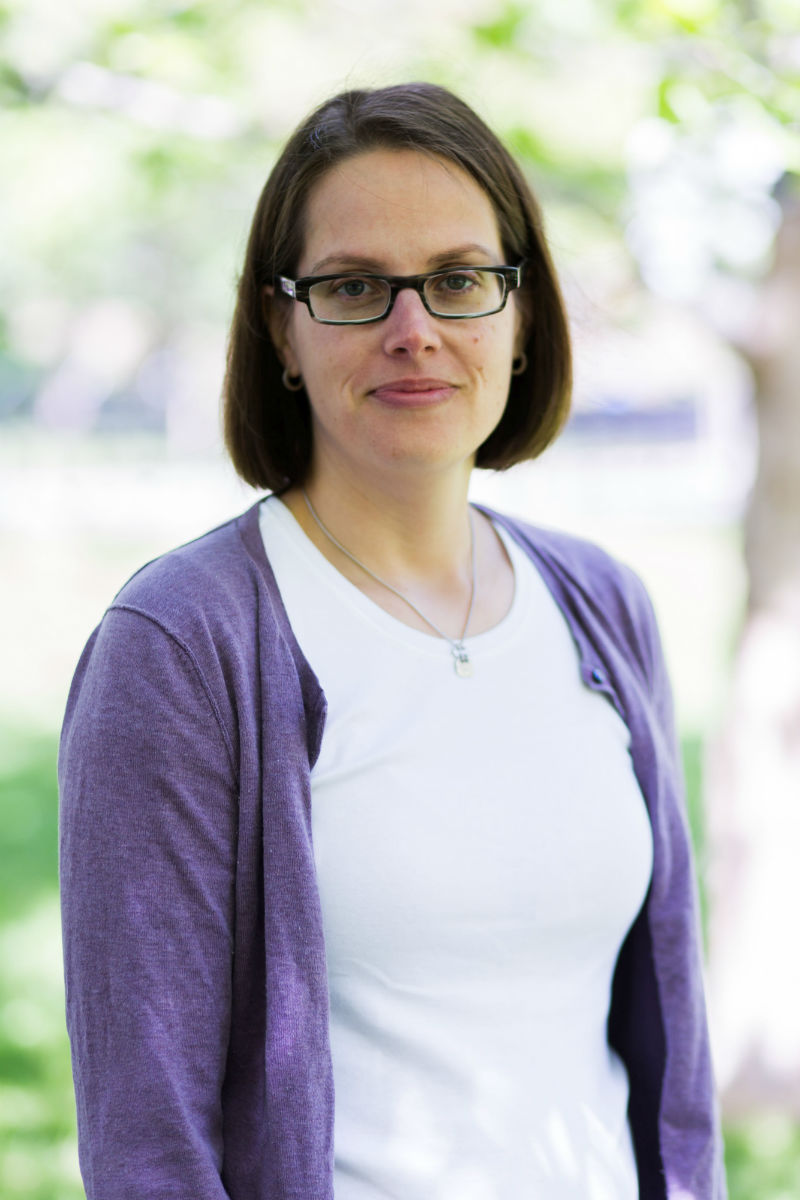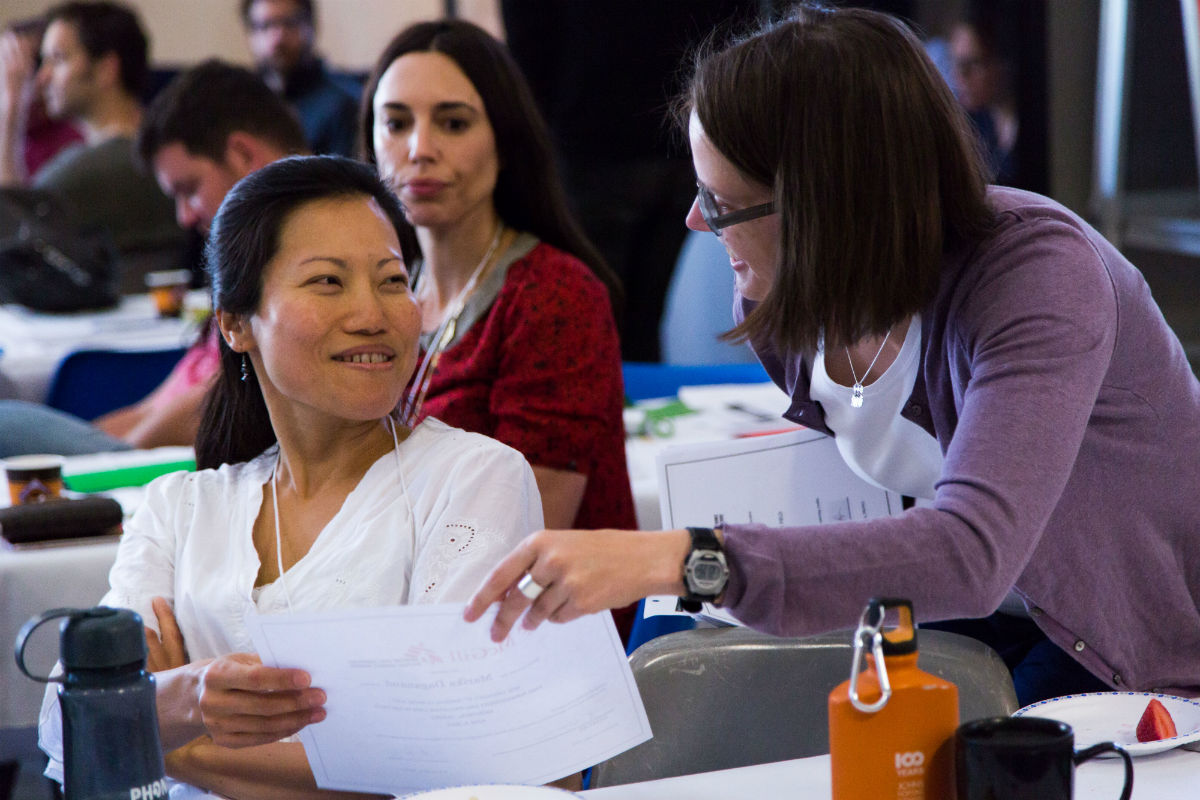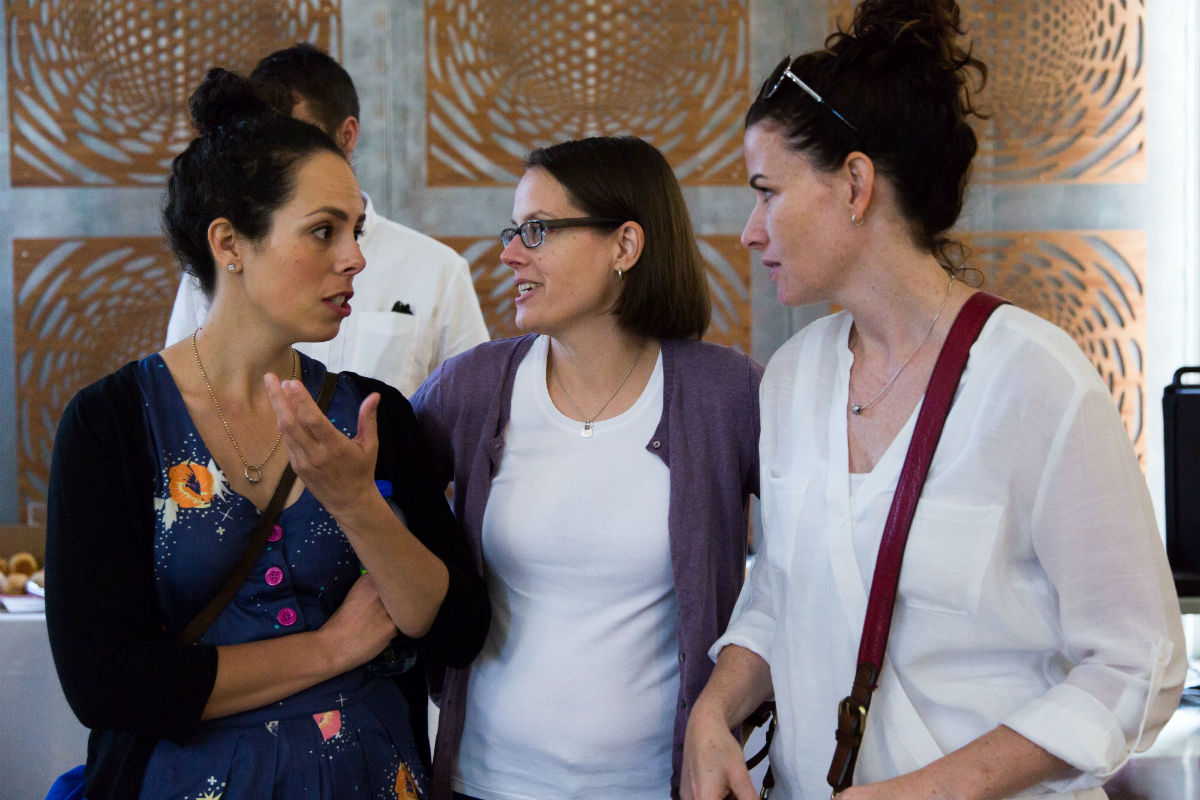Dr. Sarah Giles (BSc’01, MD’05): Humanitarian Advocate
By Mark Campbell
It is the kind of life or death situation that stays with you all your life. Imagine you have just finished evacuating a hospital in Nasir, South Sudan when a family arrives with an unconscious woman who has been in labour for several days. You have no equipment, no midwife to assist you, and there is a civil war making it nearly impossible to secure help or resources on such short notice. What do you do?
 If you are Sarah Giles (BSc’01, MD’05), you take action, making a call via satellite phone to ask a colleague for advice and work out a plan. You treat the mother-to-be for seizures, infection, dehydration and low blood sugar, and then work to induce labour again. When at last you deliver the baby, you perform a full neonatal resuscitation, only breathing a sigh of relief when a midwife arrives to assist you after four hours of work to save the lives of a mother and her infant.
If you are Sarah Giles (BSc’01, MD’05), you take action, making a call via satellite phone to ask a colleague for advice and work out a plan. You treat the mother-to-be for seizures, infection, dehydration and low blood sugar, and then work to induce labour again. When at last you deliver the baby, you perform a full neonatal resuscitation, only breathing a sigh of relief when a midwife arrives to assist you after four hours of work to save the lives of a mother and her infant.
“I came very close to fainting,” Giles recalls with the kind of clarity that leads you to believe this happened only yesterday. “I was thinking ‘I’m probably dehydrated,’ but I didn’t know I was seriously ill with four different tropical infections, plus a kidney stone.”
Giles pauses. “If the price for the lives of that mother and baby is three months of recovery, it’s totally a great deal.”
That harrowing medical emergency is one of many the Dalhousie Faculty of Medicine alumna has encountered during four assignments with Doctors Without Borders/Médecins Sans Frontières (MSF), which has been providing international emergency medical and humanitarian relief since 1971.
Harrowing assignments

Dr. Giles during the MSF Annual General Meeting in Montreal in June. (Photo credit: Selena Phillips-Boyle)
The places Giles goes are places where lives are constantly in danger, and not just because people have no access to health care. During her first assignment, Giles visited predominately Rohingya communities—listed by the UN as one of the most persecuted groups in the world—in Mrauku, Rakhine, Myanmar. Next, Giles travelled to South Sudan, where she covered the hospital’s ER, adult and pediatric inpatient wards, ICU, and in-patient malnutrition project. She went on to run a trauma project and a newborn unit for babies in Hangu, Pakistan and in 2016, she travelled the Mediterranean Sea aboard the Aquarius, tending to hundreds of refugees and migrants desperate to reach Europe.
“It is incredibly hard work,” Giles says of her MSF experiences. “I would say it is the hardest thing I have ever done and probably will ever do, but I believe if you have skills that can help people, you’re morally obliged to do it. To know you can provide treatment to someone who, had MSF not been there, may not have otherwise survived is an amazing sensation.”
A legacy of great lengths
Giles is a doctor with a legacy of going to great lengths to treat patients, literally and figuratively. For years, she has worked in Canada’s North as a remote rural family physician, often filling in for colleagues during vacations, maternity leave or illness. These rotations have not only served to prepare her for MSF assignments but also opened her eyes to issues around access to health care in Canada that need to be resolved.
“The communities I serve are mainly First Nations communities, and they are often short of doctors,” Giles says. “That needs to change. Being a board member of Canadian Doctors for Medicare gives me an opportunity to do this, because I can use my involvement to influence policy and ensure all of my patients have better access to care.”
The determination to provide people with care where they live is, in part, why Giles decided to get involved with MSF. She says a placement on Christmas Island in the Indian Ocean provided a catalyst for her decision. “I responded to a mass casualty incident where 50 boat passengers died. They were mainly Kurdish people seeking asylum in Australia and I thought, ‘Okay, maybe I can try and help people in their own countries so tragedies like this do not happen again,’ which led me to join MSF.”
Fundamental balance discovered at Dal
Giles’s is now taking her passion for improving access to health care and building on it by completing a Fellowship in Global Journalism at the Munk School of Global Affairs at University of Toronto. Writing, she says, is not only a fundamental tool for advocacy work but also an invaluable coping mechanism for processing the horrors she has witnessed during her MSF assignments. And it was one of the reasons she chose Dalhousie for her undergrad studies.
“The university allowed me to do Neuroscience with an unofficial minor in English—something I couldn’t do at most other universities. That’s what really kept me reading and writing; it balanced out the science with arts and I love the combination.”
Next destination/generation

Dr. Giles during her time on the Aquarius, MSF’s search and rescue vessel on the Mediterranean. (Photo credit: Alva White)
As for the future, Giles will continue to serve patients in Canada’s North and is contemplating another MSF assignment once her journalism studies are complete. She is also focused on engaging with the next generation of medical students, encouraging them to look at ways they can improve both access to and delivery of health care.
“I don’t believe in medical students going on trips to other countries in a misguided attempt to provide health care,” Giles explains. “I want to encourage them to look around Canada and their own communities to see what they can do. If we have a generation of students who are committed to asking difficult questions and to making the system work better for their patients—for the people who have difficulty getting their voices heard—I would be proud to be a part of that.”
